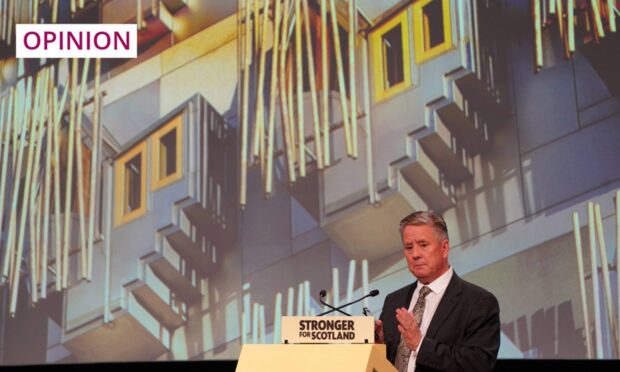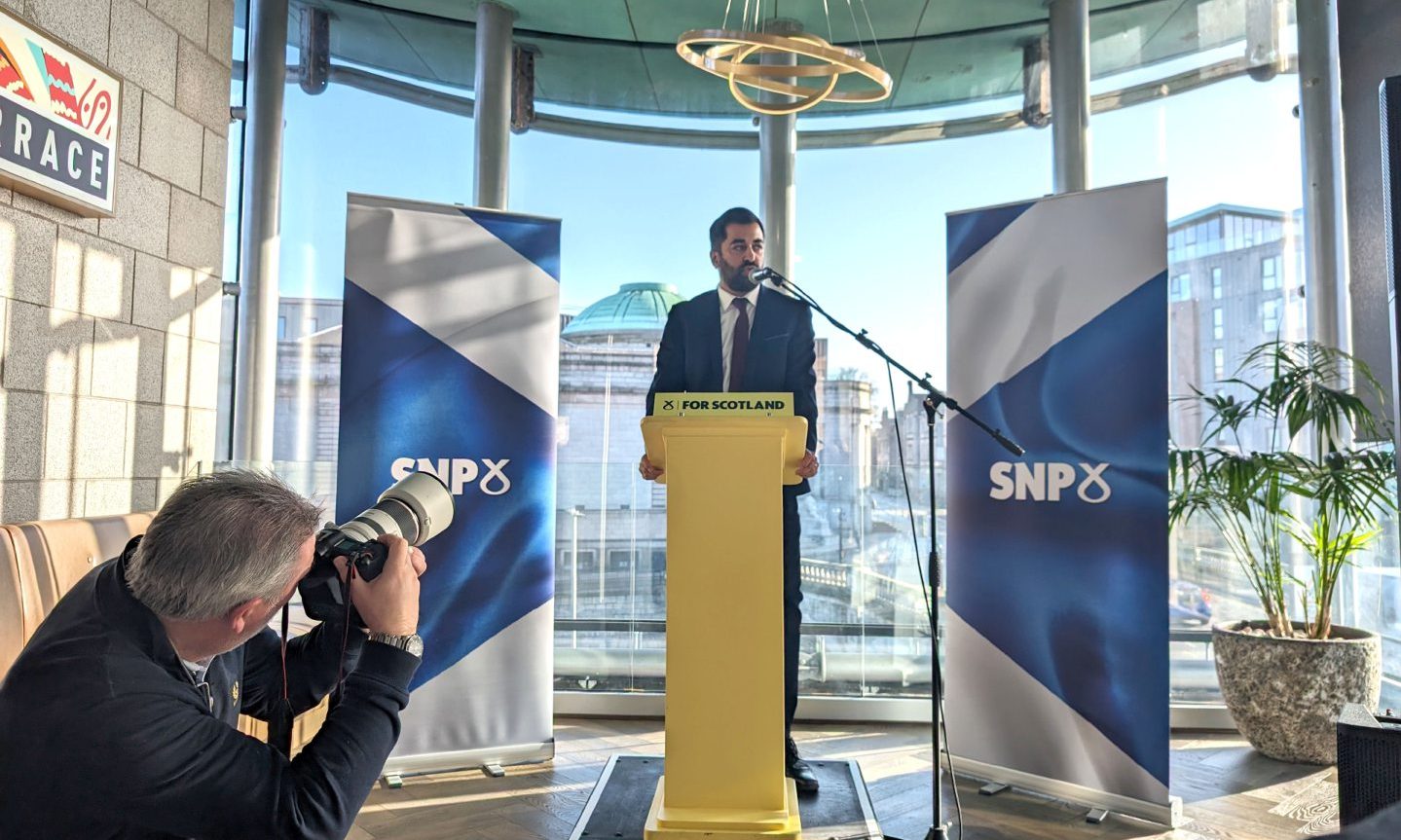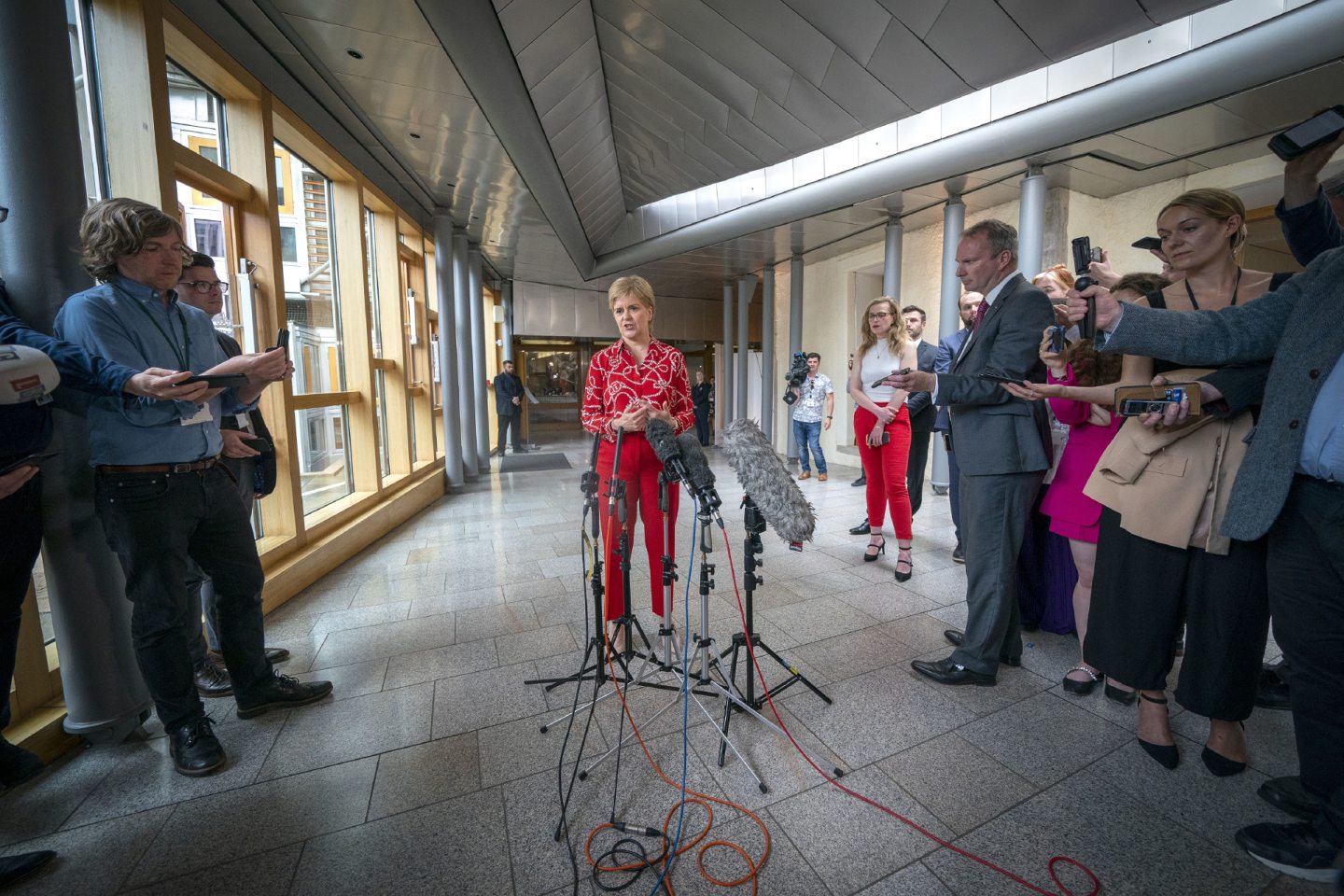For years now, the SNP has got away with presenting two quite distinct faces to Scots and to the world.
The first displays the party as a grown-up government, dominant at Holyrood, focused on shifting the nation towards a high-tax, high-spending economy, and embedding a political culture that is defined by invasive state intervention.
The Nats describe themselves as social democrats, but this is relatively new clothing. They are Johnny-come-latelies to the focus on fighting poverty, to debates about economic growth and health and education policy. For most of their existence, they couldn’t agree on what they thought about any of this, and didn’t much care. Their election manifestos were paper-thin. All the membership really had in common was a gasping thirst for Scottish independence.
This was, and remains, the second face: that of an angry protest movement, a side of the SNP defined more by what it is against than what it is for. It is against Westminster and everything to do with Westminster, the continuity of the UK, nuclear weapons and nuclear power, tax cuts, the Tories, Labour, most wars, and any interference by the UK Government in what the Nats view as their quasi-independent fiefdom. In common with protest movements everywhere, this is accompanied by a reflexive chippiness, a lack of nuance or willingness to compromise.
Before the Scottish parliament came along to confer the dignity and chauffeured limos of high office, this face was all the SNP had. For decades, the party amounted to not much more than a small circle of whingers, with few MPs, weak public support, and a “the world’s against us” crankiness that you still see in some of the more aggressive public appearances by Alex Salmond, Nicola Sturgeon and other politicians of the pre-Holyrood vintage.
Salmond becoming first minister in 2007 meant things changed for a while. Face one came to dominate. His minority government even worked with the Scottish Conservatives to pass its legislation. Responsible, competent, engaged, collaborative – this was the message being sent to an electorate that Salmond hoped would find such behaviour a persuasive precursor to a vote for independence.
Rebellious side of nationalism is once again rearing its head
What the SNP has discovered is that government is much, much harder than it looks. The party’s adventures in education have done little more than drive the system further into decline. The health service is close to falling over. The economy bumps unimpressively along the bottom. Ferries don’t get built. Society-shaping interventions, such as the Named Person scheme, the ban on alcohol advertising, and gender recognition law reforms, have all come a cropper.
The constant ratcheting up of the tax burden has left the population confused: public services are poor and getting worse, so where is all the money going? The approach to business, at best one of indifference and at worst of hostility, doesn’t look so smart in an era of tight budgets, high living costs and a fast-changing economy. Where are new revenues supposed to come from, other than through economic growth driven by the neglected private sector?
Adding insult to injury, public opinion on independence has barely shifted an inch since Scots voted to remain part of the UK in 2014. And now the Nats are on the electoral slide.
Perhaps it shouldn’t surprise us, then, that the rebellious side of nationalism is once again rearing its head. There are plenty in the party and the wider movement who anyway find the world of opposition to be more comfortable territory: give us something to rage against!
We saw it in the parliamentary shenanigans that accompanied the recent vote on Gaza. What started out as an attempt to push Westminster towards supporting a ceasefire became an entrenched battle over procedure and the role of the Speaker. Whether Lindsay Hoyle messed up or not, the affair left an unpleasant taste in the mouth. SNP politicians are still attempting to force Hoyle from office, which is entirely about the political game and not at all about aiding the benighted Palestinians.
Immediacy over the long game
We saw it at the weekend when Keith Brown, the SNP’s deputy leader, called for the party to consider withdrawing its MPs from Westminster. “Given the ‘diet democracy’ of the UK, and the denial of democracy to Scotland, it seems we now need to examine whether it is right to confer any legitimacy on an institution determined to deny democracy in Scotland,” Brown said.
Brown has been slapped down by his superiors, but you and I know that his sentiments will have been well received by a decent chunk of the independence movement. With the era of SNP hegemony drawing to a close – and it is, whether they admit so publicly or not – frustration is rising.
As the Nats fall further, I suspect we’ll hear more of the Brown-style guerrilla stuff
Some view the party’s record in office as a missed opportunity to show not just that things could be run differently, but competently. Others lament the failure to use what will amount to nearly two decades in office to build support for independence to majority levels. The two are, of course, connected.
As the Nats fall further, I suspect we’ll hear more of the Brown-style guerrilla stuff. Protest movements are fuelled by anger, rather than careful strategising; by immediacy rather than the long game. It might scratch an itch, but ultimately it’s no way to win.
Chris Deerin is a leading journalist and commentator who heads independent, non-party think tank, Reform Scotland



Conversation